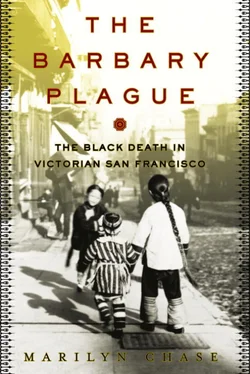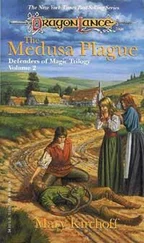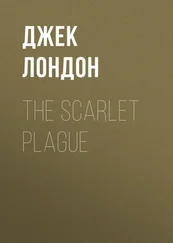Victor was “the family paragon, and entirely worthy of the great love his parents, brothers and sisters bore him,” his sister Kate Lilly rhapsodized. About her other brother, she measured her words. 13
“There was the greatest difference between Victor and Rupert,” Kate said. When Victor returned home a war hero, he “hob-nobed with everybody he had ever known,” she said. The younger boy was neither war hero nor socialite. “Rupert is very different,” Kate said. “He just cannot stand on the street corner and give the glad hand to to somebody he might have gone to school with….” 14
After school days were over, Rupert got his first taste of medicine in 1888, when he spent a precollege year studying practical pharmacy in Latta, South Carolina, a tiny hamlet eleven miles north of his home. He lived in a boardinghouse and was desperately homesick for the plantation but put on a brave face. “Thanks to a nature that is cosmopolitan,” he wrote gamely, “I am content to live anywhere.” 15Truth was, he so craved contact that he sent stamps home to coax the family to write him letters.
Blue’s boyhood ended abruptly one winter night. Although he stood a robust six feet two, Rupert’s father wasn’t as strong as he looked. During the Civil War, while leading a regiment called the Scotch boys, he managed to dodge lead balls and cannonfire, only to carry home scars in his heart, possibly from rheumatic fever. Although he was a noted temperance leader who abstained from alcohol, he indulged freely in tobacco, which further strained his heart. Even getting about the farm became difficult, and his sons implored him to rest. That winter, his vigor failed utterly. He left the clinging damp of Marion for the brisk air of his old home in Richmond County, North Carolina. Victor, then on naval exercises in Europe, and Rupert, at his pharmacy in Latta, wrote anxious letters home, begging for news of “Pa’s” recovery. When Mrs. Blue and the girls opened Colonel Blue’s letters home, they saw a frail and spidery hand that crawled across the page, belying his words of stout cheer and sure recovery. 16
On Christmas Day 1888, Colonel Blue suffered a heart attack. He lingered through the New Year. As his family gathered around his bed late on Sunday night, January 6, 1889, he died. They buried him in North Carolina. 17
His widow was left to manage on her own with two teenage girls at home—Kate and Hettie. Her eldest son, Bill, would manage the farm. Her middle son would continue his naval career. Her youngest boy, a twenty-year-old pharmacy apprentice, had no degree and meager prospects. That would change fast.
Galvanized by his family’s loss, Rupert now entered the University of Virginia at Charlottesville—“Mr. Jefferson’s University.” He wanted to reassure the family that, despite the enticements of college life, his soul wasn’t in jeopardy.
“You must not fear for my morals because I can not be persuaded to do a thing, when that thing is distasteful to me. I will not assimilate the vices of others,” he wrote to Kate. “[I]f I am spared to good health I can accomplish something, for I have the will & ambition.” 18
After two years of study in the serpentine-walled campus at Charlottesville, Rupert entered medical school at the University of Maryland, Baltimore. There, he wasn’t the most brilliant student, but rather an earnest toiler with a sharp new sense of duty.
“I am working like a Trojan,” he wrote to Kate, “and I trust that my labors will be rewarded.” Money was tight since his father’s death, and he had to choose between tuition and travel. “I may come home in the spring,” he wrote, but he added, “It depends entirely on the state of my exchequer. I want enough to take a short course in hospital diagnosis.” In his command of medicine, he feared he was falling behind another Virginia school chap and friendly rival, Joe Guthrie, who surpassed him by taking a hospital course in New York. “There is,” he despaired, “so much to learn….” 19
There were distractions. While he toiled, “matrimonial fever” swept the country cotillions of Marion. Rupert had been courting a local belle named Miss Emily, but he was a diffident suitor and wrote of love as a recurrent affliction from which “I hope I will be cured….” 20
Finally, Blue’s medical school travails paid off. He won a rank of second place in anatomy class, with an average of 90 percent in other subjects.
On April 15, 1892, Blue graduated from medical school. None of his family attended his graduation, so he wrote a letter sketching the pageantry for his absent kin.
“Our commencement exercises yesterday were pompous and ceremonious to an extreme,” he wrote.
“I begin my professional career today with perfect cognizance of the many responsibilities which rest upon my shoulders,” he said. “When I listened to the valedictory address, I mentally determined that I should ever be found on the side of right—let the consequences be as they may. That temptation no matter how alluring should not deter me from the path of rectitude,” he went on. But anticipating that Kate would mock his solemnity, he rushed to add, “This confession may seem strange to you, knowing my early training and fixed attributes of character; but I will reply by saying that a physician’s life is one beset with peculiar environments and open to many possible indictments.”
Then, trying out his new title, he signed the letter with a professional flourish:
“Love to all. Yours, R. L. Blue, M.D.” 21
After an internship in Baltimore, where he treated sick oyster-men, R. L. Blue, M.D., applied to join the U.S. Marine Hospital Service, the guardian of ports and quarantines that during his tenure would grow into the U.S. Public Health Service. Admission to the service was granted by a competitive exam covering medical and general academic knowledge. Blue was nervous. Kate, now an aspiring librarian, sent a shipment of great books so he could stuff his head with learned allusions. They came too late. But Rupert made a good show, reading Latin fluently. Still, entrance into the Marine Hospital Service commissioned corps required a presidential appointment and confirmation by the Senate. There were twenty-five applicants and only four vacancies.
As he waited for word, he gnawed away his anxiety by indulging in his father’s vice—tobacco—and wrote letters to his family.
“This branch of the service has many advantages over the Navy or Army…. I am in exactly the same straits that Victor was in that summer he was home from the 2 years’ cruise, [i.e.] in awaiting orders,” he wrote Kate. “I do not know yet where I will be permanently located. It can be anywhere from Maine to California or from the Lakes to the Gulf. There is some excitement in this condition and I am making tobacco fly….
“Our uniforms are the same as the Naval. The rank of assistant surgeon in the [Marine Hospital Service] is that of a lieutenant, the pay is from 16 to 17 to 18 hundred per year. You see the pay is better than that of an Ensign or [Lieutenant] on shore duty. But of course there are some disadvantages, viz. being ordered to a yellow fever quarantine station at Key West, Fla., or the Dry Tortugas. Tell Ma and Sallie not to fret….” 22
Joking years later about his choice of public health over private practice, he told his mother that private physicians were too dependent upon the money and the gratitude of rich patients. And gratitude, he said, is part of the disease: Once the patient’s cured, it goes away. But the truth was, he didn’t aspire to just cure disease. He wanted to prevent it entirely. 23
To Blue’s relief, his appointment to the U.S. Marine Hospital Service was promptly confirmed. One of his first assignments sent him south to the humid seaport of Galveston, Texas. There, in the Gulf town, he gave his mother a new cause to fret—not yellow fever, but a fever common to young men. Across the footlights of a Galveston theater, he saw a vivacious young actress and was smitten. Her name was Juliette Downs, and she was the daughter of a southern railroad man. Her choice of a stage career would have upset many a good Victorian matriarch, especially one born of genteel southern stock like Annie Maria Blue. One might court an actress, even sow a few wild oats. But marriage? An actress was certainly a questionable candidate for daughter-in-law.
Читать дальше












